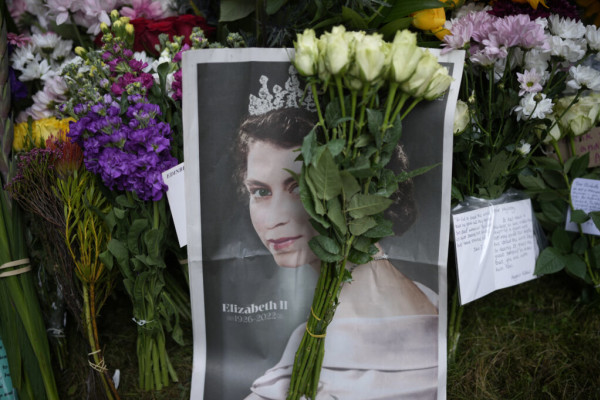Royal Family teaches wealth managers a lesson in succession planning

Following the death of Queen Elizabeth, the wealth management industry will watch the handover of responsibilities from one generation to the next with interest
As the UK mourns the death of and commemorates the life of Queen Elizabeth II, many families and societies around the world are beginning to consider the lessons they can learn from the late monarch’s unprecedented 70 year reign.
The quintessential matriarch has not only comforted and encouraged her population as it lives through key events of the 20th and 21st centuries, she has also had to look inward to mitigate many crises and upsets within her own palaces. These have included a series of divorces, the untimely death of Princess Diana after a high-speed car crash in Paris and a brewing generational rift with Prince Harry and his wife Meghan.
For wealth managers, these typical family upheavals and the handover of both assets and responsibilities from one generation to the next are the reasons they feel high-profile families need their services more than ever.
One of the first lessons wealth managers have learned is that they – and their clients – need to be flexible. Under the ‘Great Wealth Transfer’, industry estimates expect at least £5tn ($5.8tn) to move from matriarchs and patriarchs to their offspring in coming years in the UK. In the US, this figure could be anything from $30 to $70tn, depending on whom you speak to.
We have to remember that each generation has its own values and cultures. Conflict often comes from a clash between these. In recent times, each young generation has been ridiculed, reprimanded and sometimes disowned by its parents.
The ‘angry young men’ of the 1950s and 60s pressed for greater social mobility and working class influence in both the labour market and society in general. The ‘hippie’ movement of the 1970s sought peace, free love and a secular approach to solving word problems, combining both scientific and artistic perspectives. The 1980s ‘yuppies’ followed Michael Douglas’s ‘greed is good’ and ‘lunch is for wimps’ aspirational, free market mantras from his iconic Wall Street film. The 1990s saw a more inclusive ‘Cool Britannia’ ideology, embracing popular culture with an optimism around equality and an end to totalitarianism. More recent waves of younger cohorts have concentrated on clean energy, climate change and reducing inequity and racial bias.
The Queen has presided over all these eras and her children and siblings have, to various extents, participated in the cultural upheaval they have heralded. Looking at the 15 prime ministers who served during her reign, it is interesting to see that it is Harold Wilson’s ‘white heat of technology’ speech – made before he took office, at the Labour Party Conference in 1963 – which is being regularly replayed on UK media. He was her first Labour prime minister, yet a socialist sympathising politician who espoused technological and trade progress rather than concentrating purely on social equality.
The subsequent fourth industrial revolution, which we have lived through since the turn of the millennium, encompassing both the internet and climate change, has helped define the type of investments and attitudes which the Next Generation of investors, entrepreneurs and inheritors is interested in. It includes social liberalism in addition to industrial and economic reform. It has influenced King Charles III, outspoken on architecture, social responsibility and ecology; Prince William and his crusade to improve mental health; and the media savvy Prince Harry and his wife Meghan, in their attempts to build a family brand around philanthropy.
Family feuds
All of these trends are highlighted by private banks and wealth managers in their strategy for capturing the loyalty of multi-generational families. But the banks must also go deeper and address disagreements between these family tiers.
“What we have learned over the past 25 years is that the Royals are prone to the same family problems that all of us have with one important difference: they are also one of the most visible families,” says April Rudin, founder of the Rudin Group high net worth global marketing firm in New York.
“The Queen was tasked and burdened with managing the tarnished reputations of her immediate family in the public limelight. I think that one important lesson to learn is that even the best laid, and well-intentioned plans, should be subject to change. For most families, this can be done quietly without being subject to the public's scrutiny.”
According to wealth watchers, 73-year-old King Charles now has the opportunity to eventually carve his own legacy, around environmental issues in particular, independent of his mother’s oversight and advice. This handover of responsibilities at a much later age is something that wealth managers have become accustomed to and many are increasingly preparing the inheritors to run the family business through ‘boot camps’, where they are mentored by investment and business experts, although this process typically kicks in for much younger family members.
“In terms of family structure, he will have his own time with his own heir to the throne to provide counsel to William while realising he will have his own interests,” adds Ms Rudin. “I think that Charles' attempt to shrink the visible Royal Family is just one act that will impact the future, or lack thereof, of the Royals.”
Stay in step
Alongside other brands, banks are observing the situation closely, wanting to keep in step with public opinion and not alienate any future client bases. One employee of Barclays, for instance, mentions “a warm and heartfelt memo sent to their employees globally”, along with changing the logo from a blue eagle to a black eagle during the mourning period.
Most banks are likewise sending messages of condolence to the King and his family. Peter Flavel, CEO of Coutts, widely regarded as the Royal Family’s bankers, comments: “We join the nation and all our friends across the Commonwealth in sending our deepest condolences to the Royal Family for their loss and our thoughts are with them at this time. As a sign of respect, we are flying the Union Jack flag at half-mast at the Coutts Headquarters on 440 Strand.”
When it comes to more detailed questions about the lessons which the wealth industry can learn, UK banks are reluctant to comment during the mourning period. Westminster insiders tell PWM that both political parties are also treading carefully, not willing to upset the respectful public mood, preferring to act cautiously in any recommendation to suspend sporting events. “By the time things settle down on Monday, the discussion will be much freer,” one Westminster source told PWM.
Once the debate frees up, private banks and wealth managers will, no doubt, begin to share the vital lessons of one of the most high profile transfers of responsibilities, assets and experiences with the public.



